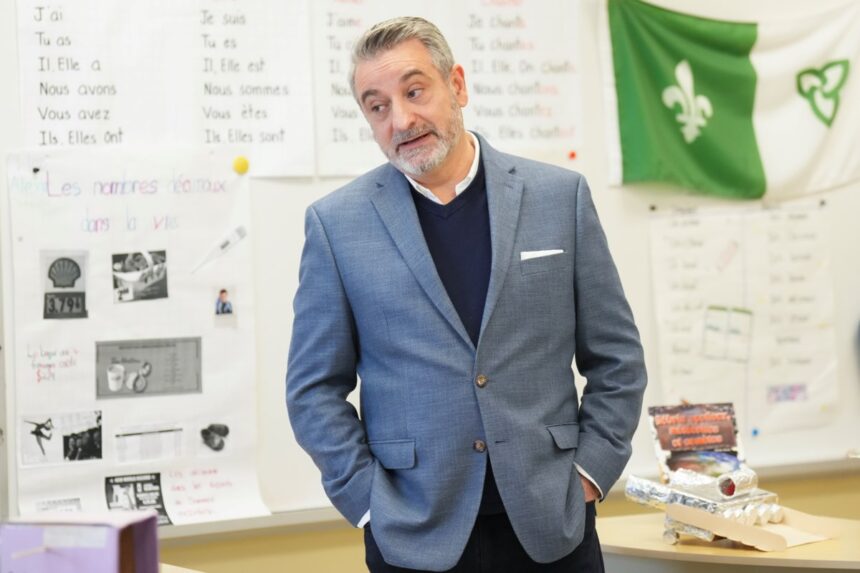The Ford government’s dramatic move yesterday to appoint supervisors for four major Ontario school boards marks what education experts are calling an unprecedented expansion of provincial control over local education governance.
I spent yesterday afternoon speaking with trustees, parents and education policy analysts after Education Minister Todd McCarthy announced the province would take control of the Toronto District School Board, Toronto Catholic District School Board, Kawartha Pine Ridge District School Board, and Thunder Bay Catholic District School Board.
“We’re witnessing a fundamental restructuring of education governance in Ontario,” said Dr. Nina Bascia, professor at the Ontario Institute for Studies in Education, who I reached by phone. “The scale of intervention into locally-elected school boards is something we haven’t seen before.”
The province cited financial mismanagement, declining student achievement, and governance failures as justification for the takeover. McCarthy emphasized during his Queen’s Park announcement that the intervention was necessary “to restore public confidence in these institutions.”
But at a hastily organized press conference, Toronto trustee Marina Gerges offered a sharply different perspective. “This isn’t about fiscal responsibility,” she told a crowd of concerned parents. “It’s about silencing democratically elected voices that challenge provincial directives.”
Walking through Danforth Technical School’s neighborhood after the announcement, I found many parents bewildered by the news. Sarah Johnston, whose two children attend Toronto schools, expressed concern about what this means for local input. “We elected these trustees because they understand our community needs. Now who do we talk to when decisions affect our kids?”
The appointments come after months of escalating tensions between the Ford government and school boards, particularly around budget decisions. The Toronto boards have repeatedly challenged provincial funding formulas, claiming they’re inadequate for urban schools’ complex needs.
According to Ministry of Education data, per-pupil funding has remained essentially flat when adjusted for inflation over the last four years, despite rising costs for special education services and mental health supports. The Financial Accountability Office of Ontario reported in March that education spending would need to increase by 3.5% annually just to maintain current service levels.
“School boards are caught in an impossible position,” explained Charles Pascal, former Ontario deputy minister of education. “They’re legally required to balance budgets while meeting community needs, but the funding formula hasn’t kept pace with either inflation or the growing complexity of student populations.”
The province’s action follows amendments to the Education Act passed last fall that expanded ministerial authority to appoint supervisors. Previously, such interventions were largely limited to financial insolvency cases.
For communities in Thunder Bay and Kawartha regions, the takeover raises particular concerns about how rural and northern education needs will be addressed by provincial appointees. Kathy McDonald, a parent council chair at a Peterborough school, told me by phone: “Our region faces unique challenges. Will a government appointee understand why we need to keep smaller schools open when they’re community hubs?”
The supervisors, all former education administrators, will assume all powers of the elected trustees for at least one year, with the potential for extension. During this period, the 50 elected trustees across the four boards will be sidelined from decision-making, though they’ll continue receiving their stipends.
What makes this intervention particularly noteworthy is its timing — coming just 14 months before municipal elections when trustees would face voters. Critics suggest the move effectively neutralizes boards that have been outspoken about provincial education policies.
“There’s a democratic deficit here that should concern all Ontarians,” said Annie Kidder of People for Education. “School boards provide the most direct form of democratic input into education. Removing that voice means parents have fewer avenues to influence how their children are educated.”
Ministry officials counter that the intervention will be temporary and focused on establishing sustainable governance practices. McCarthy pointed to “troubling patterns” of budget overruns and declining test scores as evidence that “business as usual isn’t working.”
However, education researchers note that standardized test scores have been affected by pandemic disruptions across all boards, making them questionable metrics for governance intervention.
What happens next remains uncertain. The Ontario Public School Boards Association has called an emergency meeting to discuss potential responses, including legal challenges to the provincial authority.
For students and families, the immediate impact may be minimal, as day-to-day school operations continue under principals and superintendents. But longer-term decisions about school closures, program offerings, and resource allocation will now flow directly from Queen’s Park rather than community-elected representatives.
As I left that Toronto neighborhood yesterday evening, parents were organizing impromptu meetings to understand what avenues for input remain. Johnston’s parting comment stayed with me: “They keep saying education is about preparing kids for democracy. What lesson are we teaching them when we suspend democracy in their schools?”






